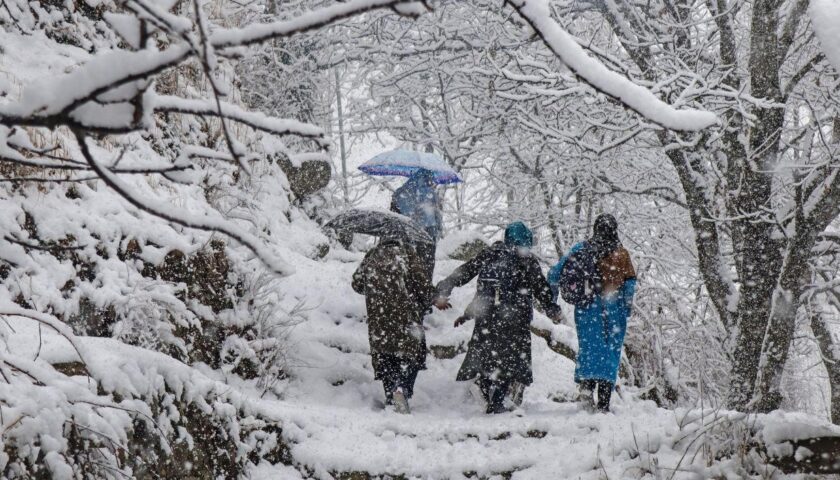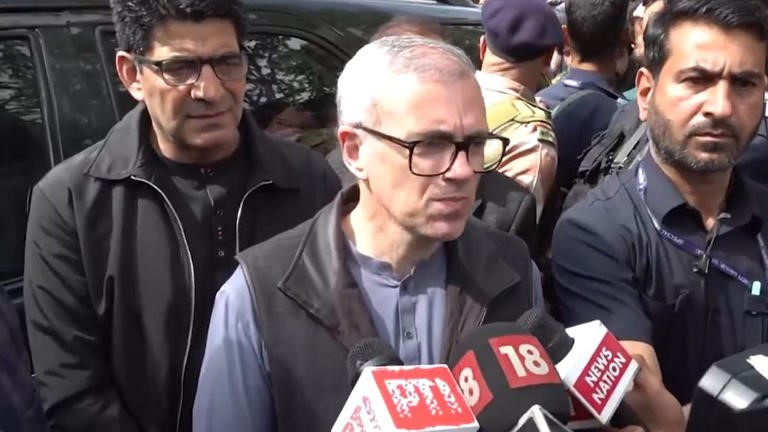India’s restive Jammu and Kashmir state is again facing crisis following the death of chief minister Mufti Mohammad Sayeed on 7 January.
His daughter and heir apparent Mehbooba Mufti has so far declined to take oath as his successor, pushing the state under federal rule.
Mr Sayeed was heading a tricky coalition with India’s ruling Bharatiya Janata Party (BJP) – one he stitched together following intense back-door and open negotiations.
In the 2014 state assembly elections, the BJP won 25 seats in the Hindu-dominated Jammu, while Mr Sayeed’s Peoples Democratic Party (PDP) won 28 in the predominantly Muslim Kashmir.
The BJP is perceived as being anti-Muslim by a majority of Kashmiris, and in stitching together the coalition, the PDP ran the real risk of alienating its vote bank.
However, Mr Sayeed justified the alliance, saying he wished to reconnect the religiously divergent regions of Jammu and Kashmir. “I cannot contribute to further dividing the state on communal lines,” he told me last year.
Alliance woes
At the time, Mr Sayeed not only chose to ignore the popular perception that joining hands with the BJP would open Kashmir to the Hindu nationalist RSS, he went the extra mile by praising Prime Minister Narendra Modi and terming him “not at all communal”.
He assured the people of Kashmir that the coalition would deliver its promises, listed out in a document called “The Agenda of Alliance”.
However, 10 months of the PDP-BJP rule has not yielded much.
A compensation package to help people affected by the devastating floods of September 2014 was delayed until November 2015 and, when it finally did come, it was not enough.
Apart from a package for Kashmiri Pandits – Kashmiri Hindus who were forced out of the region in the 1990s – and another for refugees from Pakistan-administered Kashmir, all other issues in the document have been ignored.
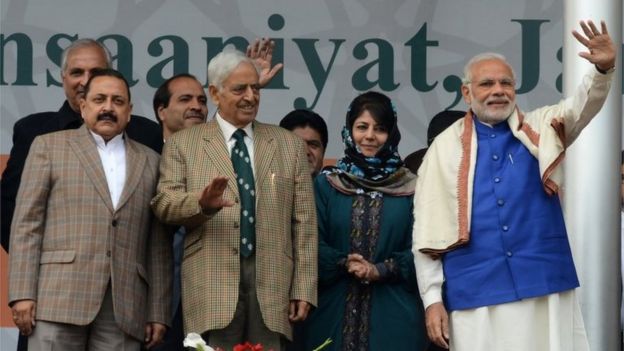
Although PDP leader Naeem Akhtar has called the document “sacrosanct”, the BJP does not seem to regard it that way.
Party members have even gone so far as to challenge Article 35A of the Indian constitution, which bestows special identity on Indian-administered Kashmir – although the document vows to preserve it. They have also made several contentious statements on Article 370 which gives Kashmir autonomous status.
Given that this is the “baggage” Ms Mufti will have to deal with when she steps into her father’s shoes, she is in a serious dilemma.
Insiders believe Ms Mufti – a vocal opposition leader so far – will always be restless while her party is in power. They say that she was against the alliance with the BJP, but could not express her opposition because of her father.
Today the party has authorised her to decide the future of the alliance.
Breaking with history
The fact that her father was “not treated well” by Prime Minister Narendra Modi and BJP in the last 10 months weighs heavily on Ms Mufti.
Although the PDP managed a huge public meeting for Mr Modi in Srinagar in November, he publicly snubbed Mr Sayeed by saying that he didn’t need advice on Pakistan. A strong advocate of reconciliation with Pakistan, Mr Sayeed had repeatedly pleaded with Mr Modi – in his speech – to mend fences.
By delaying assuming charge of the state, Ms Mufti has changed the history of transitions on such occasions.
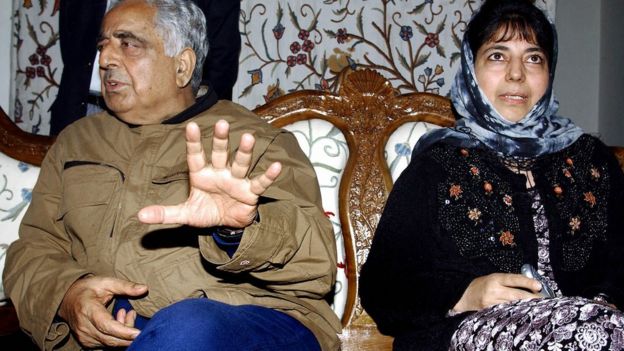
For instance, when then Kashmir chief minister Sheikh Mohammad Abdullah died on 8 September 1982, the baton was passed on to his son Farooq Abdullah the same evening.
Rajiv Gandhi succeeded his mother Indira as India’s prime minister the day she was assassinated.
Ms Mufti, however, despite knowing that she was her father’s successor, asked his staff to report back to the federal government and sent back a cavalcade assigned to the chief minister.
Limited options
This delay has made the BJP nervous.
This is the first time it has ever ruled in Kashmir, and it cannot afford to be out of power given that its position in Jammu has weakened in the past few months.
But can the PDP drop the BJP?
Analysts say the PDP’s options are limited – even if it joined hands with the Congress party (which has 12 seats) and a few independent candidates, such a coalition would be vulnerable, given the state’s dependence on the federal government.
Other PDP members have hinted at continuing the alliance and Ms Mufti too has said that she supported her father’s decisions.
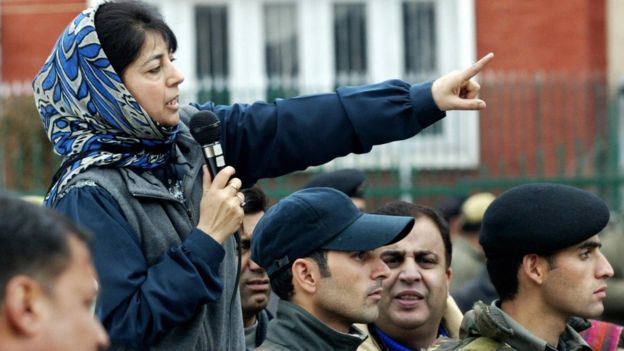 Party insiders say that Mehbooba Mufti was against the alliance with the BJP
Party insiders say that Mehbooba Mufti was against the alliance with the BJP“I will take my own time. The Agenda of Alliance is there but I will make sure that I am able to fulfil Mufti Sahab’s dreams, especially his dreams about political issues and development,” she was quoted as saying.
“I don’t mind if I get consumed in it for the welfare of the people and also for the essence of the agenda.”
While it is not clear yet whether Ms Mufti will stick to the Agenda of Alliance with “more commitments” from Delhi, the political future of the state is uncertain.
But to be in power is the compulsion for both PDP and BJP, which are fast losing ground in their respective constituencies.

